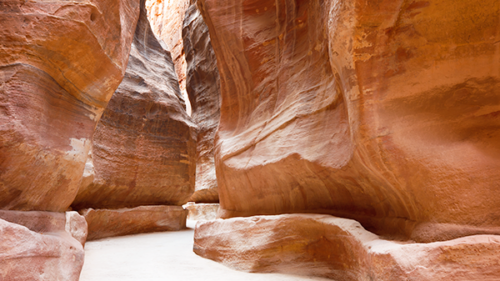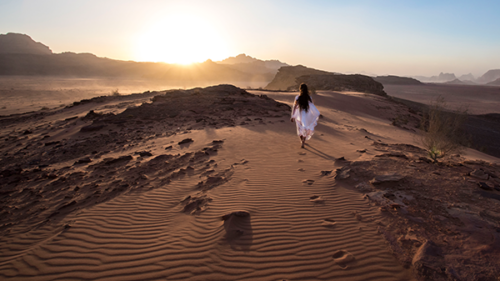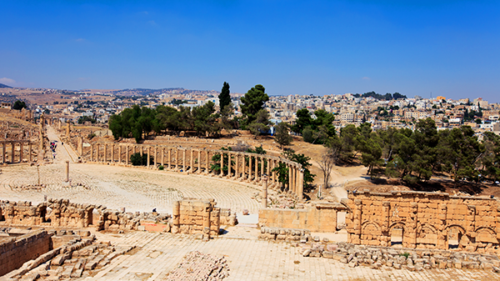Orientation
The Hashemite Kingdom of Jordan lies in the heart of the Middle East. Jordan is bordered by the West Bank and Israel from the west, Syria from the north, Iraq from the northwest, Saudi Arabia from the southeast and Egypt from the southwest.
Time zone:
Jordan is two hours ahead of GMT (Greenwich Mean Time) during winter, and three hours ahead during summer, from May 1st till October 1st.
Climate:
Hot and dry summers with cool evenings. The Jordan Valley below sea level is warm during winter and extremely hot in summer. Rain falls between November and March, while colder weather conditions occur in December / January.
Required clothing: Lightweight cottons and linens are advised between May and September. Warmer clothes are necessary for winter and cool summer evenings. Rainwear is needed from November to April.
Visas:
All nationalities require tourist visas for Jordan. A visa can also be obtained at Amman’s Queen Alia International Airport, or any other main border; payment must be in local currency. Group visa can be arranged free of charge for groups of 5 adults and over arriving together and staying in Jordan a minimum of 2 nights, provided you send us a visa list with full passport details prior group arrival.
Departure tax:
A departure tax of currently JOD. 5 per person (around US$ 7.50) are paid at all borders when departing Jordan and this applies on both groups and individuals.
Language:
The official language of Jordan is Arabic. English is widely spoken, especially in the cities, and many Jordanians have traveled or been educated abroad. French, German, Italian and Spanish are also spoken but to a lesser extent.
Currency:
The local currency is the Jordanian Dinar, or “JD”, which is divided into 1000 fils. The current exchange rate is US $100.00 is equal to JD 71.000.
Credit Cards:
American Express, Visa, and MasterCard are widely accepted, whilst Access and Diners Club have more limited use. Check with your credit card company for details of merchant acceptability.
Photography:
If you are taking photographs of local people, always ask their permission beforehand. Your guide can assist you in this. Do not take photographs of military installations or airports. Film is readily available in all tourist areas. It is advisable to carry your camera in a dust-proof bag.
Electricity:
The electrical system is based on 220 AC volts, 50 cycles, and requires rounded two prong wall plugs. Visitors from the United States of America will need a transformer; most hotels can provide one.
Health:
No inoculations are needed for visitors to Jordan. During your stay, it is preferable to drink only bottled water, although it is all right to shower and brush your teeth using tap water. Ice used in hotels is purified so it is safe to drink.
Shopping:
Jordan is a shoppers’ paradise offering hand-blown glassware, inlaid boxes, silver, gold, jewellery, brass, copper, carpets, antiques, leather wear, spices, perfumes, alabaster, embroidered covers, wall hangings and furniture. It is prohibited to export any ancient artifacts. Be careful when investing in “genuine antiques” which in many cases are excellent forgeries.
Dress Code:
Jordan is primarily a Muslim country, although the freedom of all religions is protected. Revealing clothing is never appropriate and conservative clothing is advisable for both men and women in downtown Amman and in rural areas. Topless sunbathing is prohibited and one-piece swimsuits are preferred, although two-piece swimsuits are acceptable in hotel pools or beaches. Evenings can be cool in summer, so a sweater or a shawl is advisable.



